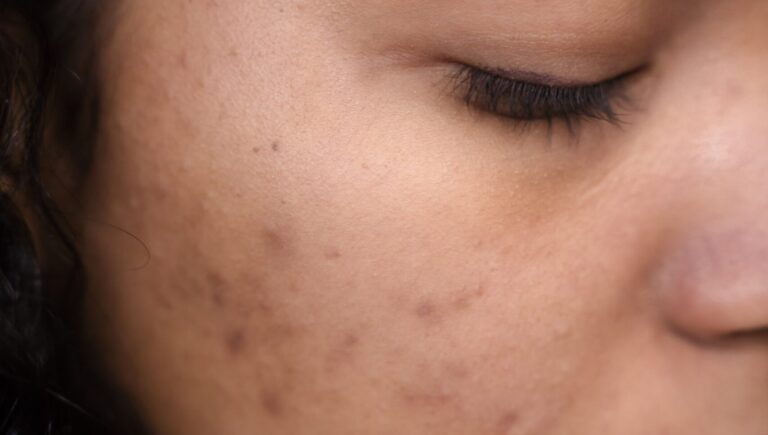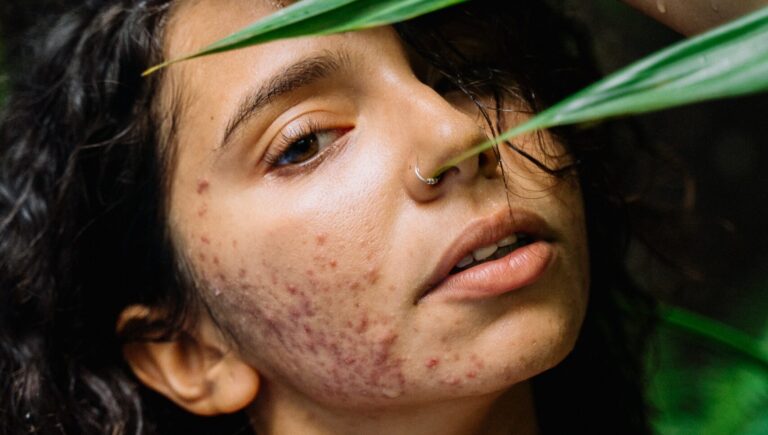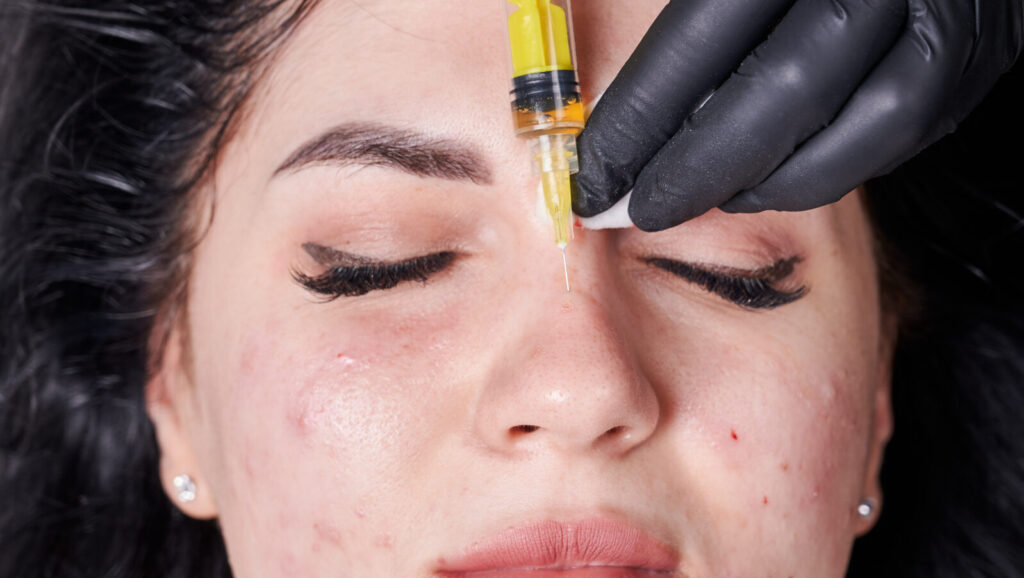People frequently look into numerous treatment options to restore smooth and beautiful skin when attempting to battle the effects of acne scars. Botox, a common cosmetic surgery widely recognized for its capacity to reduce wrinkles, has attracted interest as an intriguing alternative.
We will examine the potential advantages and drawbacks of Botox while delving into the issue of whether it can be used to cure acne scars in this blog post.

The tissue damage and swelling brought on by acne breakouts are what lead to acne scars. Atrophic scars are skin depressions that develop over time, while hypertrophic or keloid scars are raised, thickened areas. Treatment for acne scars can be difficult because it frequently involves addressing the structural changes in the skin that are at the root of the problem.
The Science behind Botox
Botulinum Toxin Type A, sometimes known as “Botox,” is a pure protein that is generated from the bacteria Clostridium botulinum. It functions by momentarily obstructing nerve signals to particular muscles, causing those muscles to relax and minimize the visibility of wrinkles and fine lines. Botox is mostly used to treat dynamic wrinkles brought on by constant muscle contractions.
Mayo Clinic says that by relaxing the skin around the injection site, Botox may help an acne scar look better. Repeated treatments are necessary to maintain the impact because the results are transient.
Can Botox Help with Acne Scars?
Although it is not intended to treat acne scars specifically, certain research and anecdotal data indicate that Botox may have the following advantages in the management of scars:
- Smoothing of Depressed Scars: When atrophic acne scars are injected with Botox, the underlying muscles are likely to relax, potentially reducing the prominence of depressions and resulting in a more equal skin surface.
- Reduction of Tension and Thickening of Hypertrophic Scars: Botox’s ability to relax muscles may also aid in lowering tension and minimizing the thickness of hypertrophic scars, resulting in a softer and more refined scar appearance.
- Enhanced Collagen Production: Collagen, a crucial protein necessary for preserving skin structure and elasticity, can be stimulated in the skin by Botox injections. Increased collagen production may aid in scar remodeling and enhance skin texture in general.
Factors to Consider
- Personal Evaluation: Because each person has different skin and scars, there is no one-size-fits-all when it comes to the efficacy of Botox in treating scars. It is crucial to speak with a licensed dermatologist or cosmetic surgeon who can assess your unique acne scars and decide whether Botox is the best course of action for you.
- Combination Methods: A thorough plan for treating scars frequently includes the use of Botox. Adding Botox to other treatments like laser therapy, micro-needling, or dermal fillers may result in more thorough and durable effects.
- Temporary Results: The effects of Botox treatments are transient, usually lasting three to six months. To obtain and sustain the best results for acne scars, many treatments can be necessary.
Additional information about using Botox for acne scars:
- Mechanism of Action: Botox temporarily paralyzes or relaxes the muscles in the area it is intended to treat. It can aid in reducing muscular tension and enhancing the appearance of some scar types, such as atrophic or depressed scars, when injected into the muscles around acne scars. Botox can reduce the pushing and stress on the scar tissue by relaxing the muscles, resulting in a smoother skin surface.
- Rolling scar treatment: Broad, shallow indentations that give the skin a waved or uneven appearance is the defining feature of rolling scars. By injecting Botox into the underlying muscles, rolling scars may be treated. This can help relax the tissue and lessen the depth of the scars.
- Combination therapy: To maximize benefits, Botox is frequently used in conjunction with other scar therapies. For example, using Botox in conjunction with dermal fillers or micro-needling might further enhance the texture and overall appearance of acne scars. Dermal fillers can assist lift depressed scars so they blend in with the surrounding skin, and micro-needling can encourage the remodeling of scars by stimulating the synthesis of collagen.
- Potential Adverse Effects: Botox has potential dangers and adverse effects, just like any medical therapy. Temporary bruising, redness, swelling, or soreness at the injection site are a few examples of these. Rarely, allergic reactions or unexpected muscular weakening may occur. To reduce dangers and ensure safe and successful treatment, it is essential to select a certified and experienced specialist.
- Patient Satisfaction and Expectations: Although some people may notice a difference in their acne scars after using Botox, it’s crucial to have reasonable expectations. Botox is not a one-size-fits-all treatment, and a patient’s skin type, the appearance of their scars, and other factors can affect how successful it is. It is best to have a full consultation with a knowledgeable expert who can evaluate your unique problem and make the best suggestions.
- Duration of Results: The benefits of Botox are transient and normally endure for a few months before progressively fading. Regular touch-up treatments may be required to maintain the reduction in acne scars. Choosing the best treatment regimen for your unique circumstances might be made easier by working closely with your healthcare practitioner.

In a nutshell...
Although Botox is usually used to erase wrinkles, some research indicates that it may also be effective on specific types of acne scars. Botox injections may help depressed and hypertrophic scars seem better by relaxing muscles and increasing collagen formation. However, as individual outcomes may differ, it is imperative to speak with a certified specialist to determine your unique needs.
Keep in mind that Botox injections are medical procedures that should only be done by qualified specialists. With the help of a dermatologist or cosmetic surgeon who can offer individualized guidance and create a treatment plan for your acne scars, discuss your worries, hopes, and potential hazards. You may make an informed choice regarding the best course of action to have smoother, more radiant skin by looking into all of your options.
Is Panoxyl Good For Acne Scars? Read this blog to find out more!
Are you stuck with double-ended makeup brushes and don’t know the proper way to store them? Here is How To Store Double Ended Makeup Brushes.

